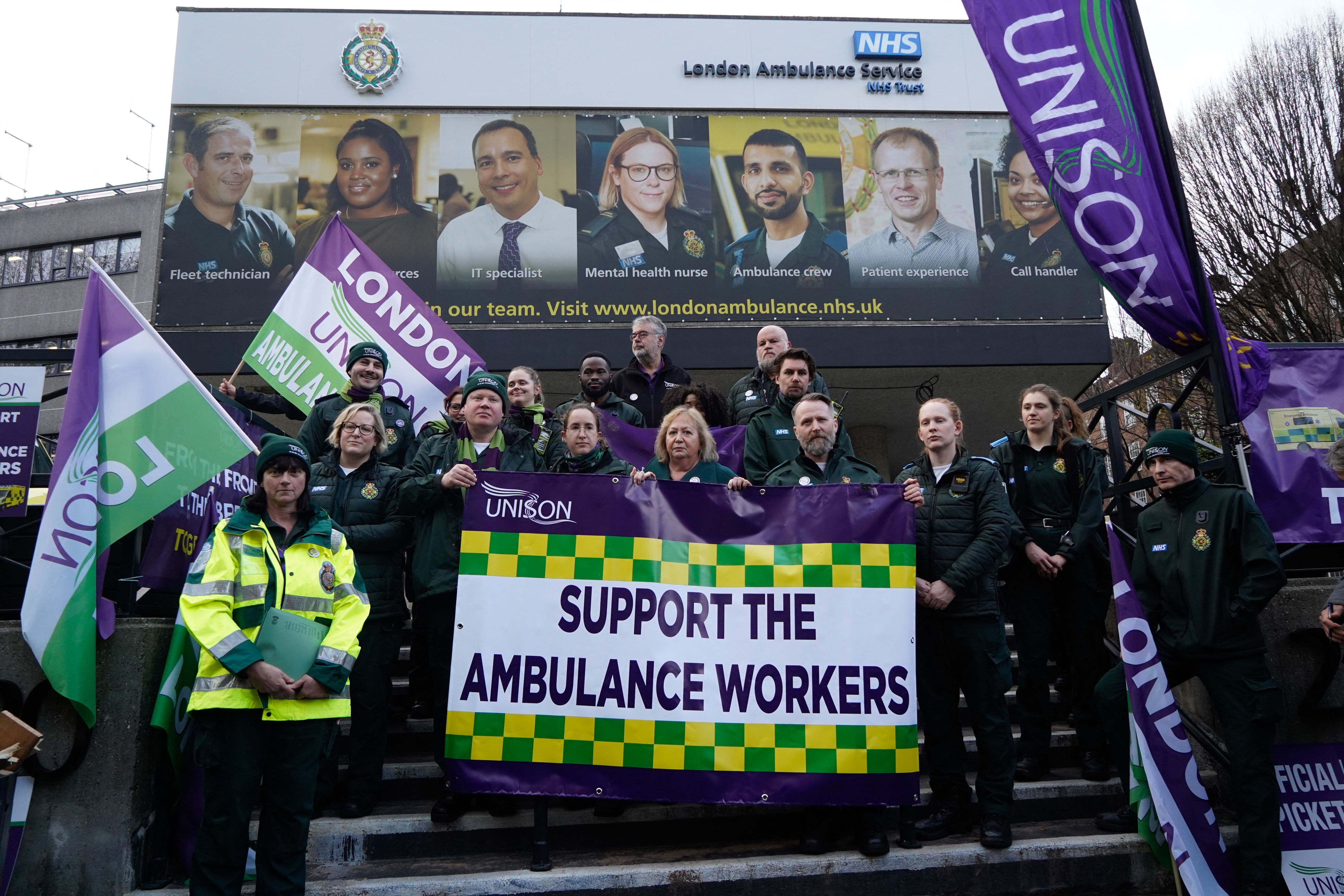Railway workers, passport agents, postal workers, nurses and now thousands of ambulance workers. Britain lives the most intense wave of strikes in decades in response to the high cost of living. The stoppages, which are on the rise, send a clear message: patience is over.
This Wednesday the 21st, paramedics, telephone operators and ambulance technicians in England and Wales began a strike that increases the pressure on an overloaded health system that already faced a strike by nurses the day before.
SIGHT: UK court rules deportation of migrants to Rwanda legal
The government asked citizens to avoid activities that could put their health at risk – and even drunkenness – to reduce the possibility that people will need medical attention.
The health personnel have joined other public sector workers who have demanded better wages this month. The discontent lies in the increase in food and energy prices as a result of the ravages of the pandemic and the war in Ukraine. In addition, inflation has broken records of several decades and stood at 10.7% in November, indicates the AP agency.
“This strike did not have to take place”Unite general secretary Sharon Graham told the BBC. “(The government) needs to come back to the negotiating table so that we can get a proper wage increase so that these workers and everyone can get back to work.”
against the ropes
The pressure is far from easing. The strikes and stoppages, with which railway employees, border agents, baggage carriers at Heathrow, Eurostar security personnel and postmen from the former state company Royal Mail also protest, were called for before and during the Christmas holidays.
In fact, the nurses have threatened more strikes in January if the Government continues to refuse to sit down at the table to negotiate an increase above the established 4.75%. The union that represents this group asks for an increase of 19% that the Government has so far refused to negotiate.
Despite the strikes, the British Prime Minister, Rishi Sunak, last Tuesday defended the current mechanisms for setting the wages of public sector employees in the United Kingdom.
“I admit that it is a difficult situation. It’s hard for everyone, because inflation is where it is, and the best way to help them and everyone else in this country is to try to bring inflation down as fast as possible.Sunak added.
The Italian international analyst Francesco Tucci points out that this is a very serious problem for the government. “I don’t recall a strike of this magnitude in decades in the UK. So far, more than 70,000 medical visits have had to be cancelled. In addition, the strike covers different sectors such as transportation, customs, and the health sector, so the government is in extreme difficulty.”, he tells El Comercio.
He affirms that in the past, especially with Margaret Thatcher, it was easier for the government to negotiate with unions and business associations because in the United Kingdom, unlike countries like Italy or Peru, there is not a single main union or union, there are several so the authorities could keep some of them happy or divide their interests.

“What strikes me is that now all these interest groups, which compete with each other, in this case to represent the workers, are heading in the same direction. In addition, the prime minister has not gone through elections and that is also a problem. It will be necessary to see what he can do, but I see the situation very badly, strikes have been scheduled until the end of the year and even January, they are not going to stop. Workers want a wage change”, he points out.
Bad strategy?
In an opinion article, the newspaper “The Guardian” recalls that the last ambulance strike, in 1989, lasted for several months and caused great hardship to those involved. “It ended because, to the surprise of the government at the time, public sentiment remained firmly behind frontline ambulance workers. Attempts to turn the tide of opinion against NHS staff have failed miserably, and it seems remarkable that the current government seems willing to repeat the same mistakes at a time when its own position is so electorally perilous.”, says the medium.
Tucci agrees that the government is taking a confrontational position, something he hardly sees as a winning strategy in the current circumstances. “That worked when there were many unions and unions with different interests, then the government in power could act with a strategy focused on dividing. This is how it has always worked in the UK, but now all the unions and guilds are not divided, they are all against the government”, he points out.
The expert believes that the government’s proposal to increase wages by 5% has not been adequate, especially considering that the country is in the midst of brutal inflation. He explains that the conservative government does not want to give in because it argues that if it does, growth will collapse in the medium and long term. “The problem is that if people cannot consume because inflation is so high, then who will buy and how will the country’s economy be reactivated. It is a disaster”.
“The government has made a mistake and is going to pay a very high cost. The British government should consider the reality that the country is going through and consider how inflation has grown and take measures that eventually lead to an increase in wages.”, he concludes.
Source: Elcomercio
I am Jack Morton and I work in 24 News Recorder. I mostly cover world news and I have also authored 24 news recorder. I find this work highly interesting and it allows me to keep up with current events happening around the world.

:quality(75)/cloudfront-us-east-1.images.arcpublishing.com/elcomercio/DMZN636WCNAGBKIWLIIKWZGIUY.jpg)



:quality(75)/cloudfront-us-east-1.images.arcpublishing.com/elcomercio/MYDUN2RCS5E6XNXC34C3LXGSKU.jpg)

